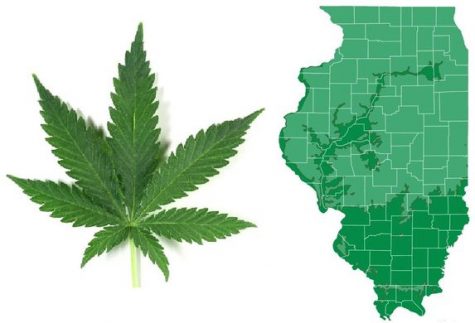Colorado cannabis cultivators want specific organic-like destinations for their crops
Pesticides are a serious concern for medical patients, whose immune systems may be compromised if they are exposed to impurities
Specialists of cannabis cultivation in Colorado believe that consumers will pay extra for their bud if it is grown organically.
Growers in the Denver area want to see the state develop credentials for weed to be produced without the use of artificial preservatives, colors, synthetic fertilizers or GMOs.
“Consumers deserve to know that there is organic and conventional,” said the owner of L’Eagle Services dispensary, Amy Andrle. “Not that there’s anything wrong with conventional, but some people want to make that choice.”
Andrle’s cannabis dispensary specializes in organic cultivation techniques. Positioned close to 6th Avenue and I-25 in Denver, L’Eagle Services dispensary carries a variety of CBD-based products. It is the first 21+ indoor cultivation facility in the capital of Colorado to be awarded Clean Green Certification.
The owner of L’Eagle is passionate about sustainable growing practices and she believes that the state would benefit from establishing clean cannabis certifications in organic-like designations.
“I would love it if the state came up with a designation that recognized organic efforts,” said Andrle.
Cannabis cultivators in Colorado support organic production methods
It’s not just Andrle who wants cannabis cultivation in Colorado to be carried out with organic production methods. Industry trade groups are also urging the government to establish pesticide-free growing practices.
Although a number of private companies have enacted these practices, cannabis cultivators in Colorado say that statewide organic production methods would be highly beneficial for the industry at large.
Andrle believes that pesticides are a problem that consumers ought to be aware of when purchasing cannabis that has been grown in non-organic environments. She advises consumers to confirm with the supplier exactly what pesticides have been used to grow crops before they make a purchase.
“There are a lot of pesticides out there that are harmful. When you ingest them it can be OK but when you’re combusting them it isn’t,” said Andrle. “All of the nutrients that we use are rated by the Organic (Materials) Review Institute.”
The institute she speaks of is an independent reviewer of pest controls, fertilizers and other chemicals. Based on the information published on its website, the Organic (Materials) Review Institute determines whether or not those substances adhere to organic production requirements.
Pesticides are a serious concern for medical patients, whose immune systems may be compromised if they are exposed to impurities.
State will develop organic spaces for cannabis cultivation in Colorado
Industry workers who specialize in cannabis cultivation in Colorado will be happy to learn that the state has decided to develop an organic space specifically for growing the medicinal plant.
The Colorado Department of Public Health and Environment revealed to Denver7 that the Centennial State forbids a long list of pesticides from being used in cultivation spaces. Additionally, it necessitates testing for 13 of the most frequently found pesticides.
However, the term “organic” probably won’t be used to describe the growing spaces, due to it being a term adopted by the United States Department of Agriculture (USDA). Under federal law, cannabis cultivation remains illegal.












